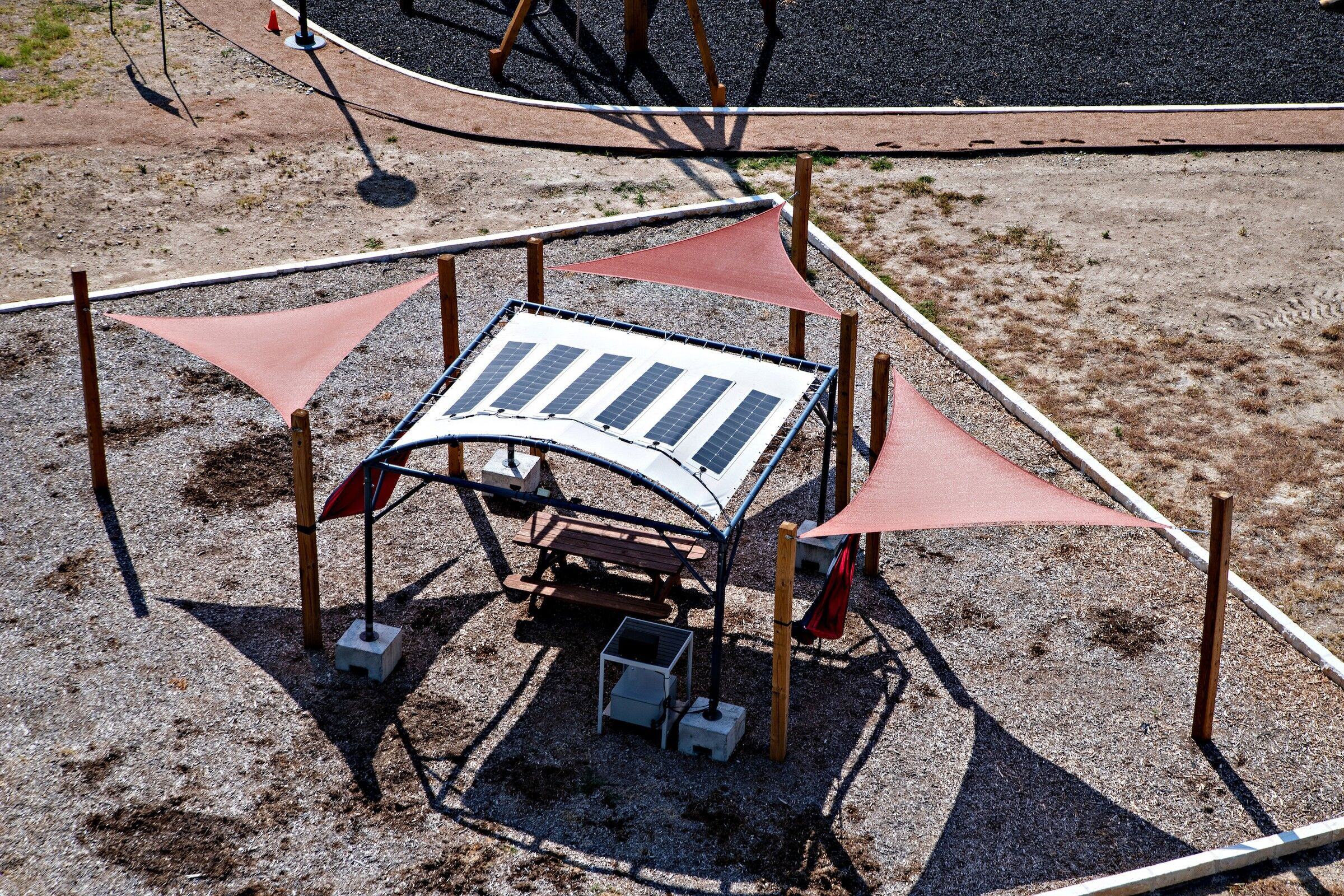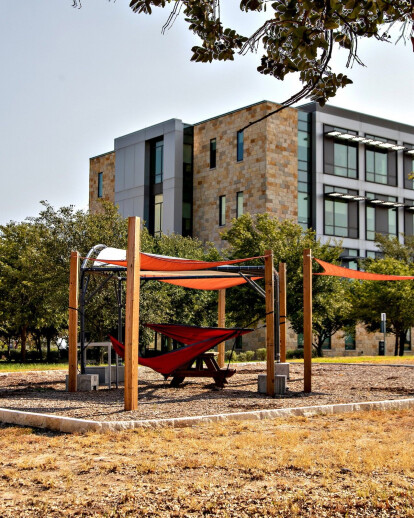Texas A&M University’s Central Texas campus needed an outdoor space where students could rest in the shade outside, enjoy the charming comfort of campus, hangout with one another, and of course charge their phones and laptops in between classes. The Central Texas location of the Texas A&M University System was founded in 2009 and has a beautifully landscaped campus where students can enjoy their free time while attending one of the largest systems of higher education in the country.
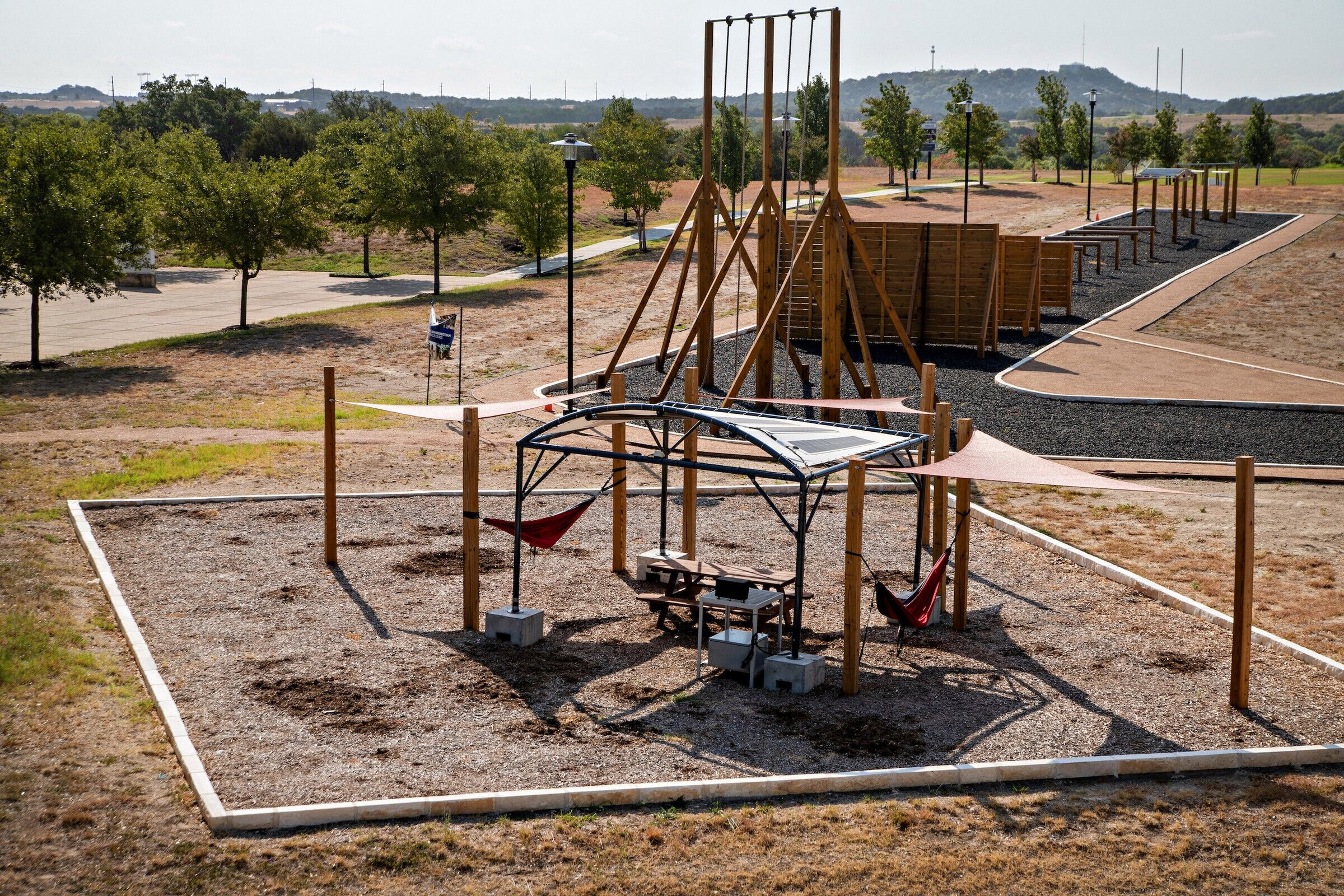
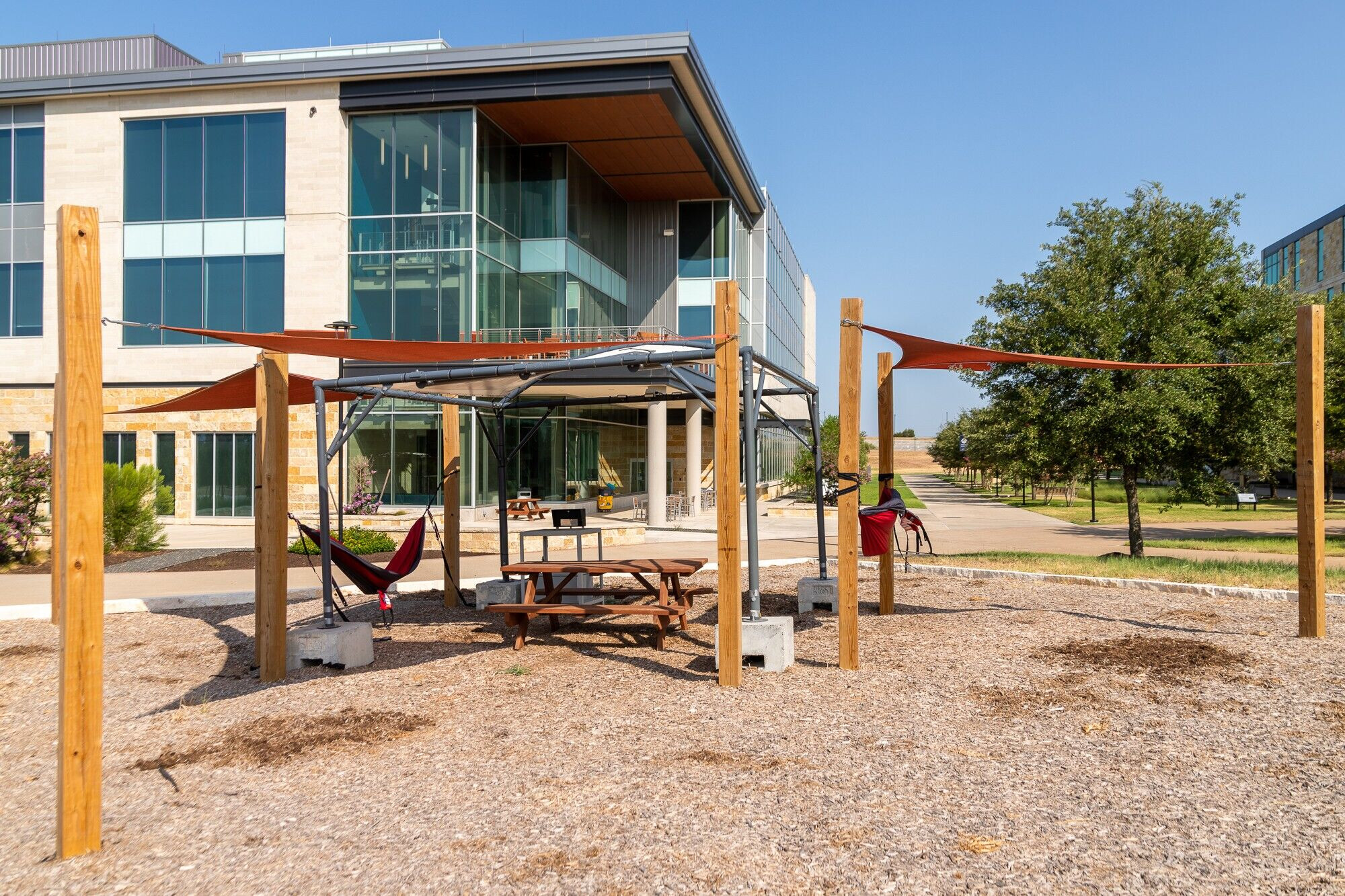
The university faced the challenge of providing shaded space that solved all of these needs, while meeting the campus’s sustainability goals, and without taking away from the attractive layout of the campus’s thoughtfully executed landscape architecture design. They turned to Pvilion, a small Brooklyn-based solar fabric product company to design and provide a fully turn-key solution to address all of these needs.
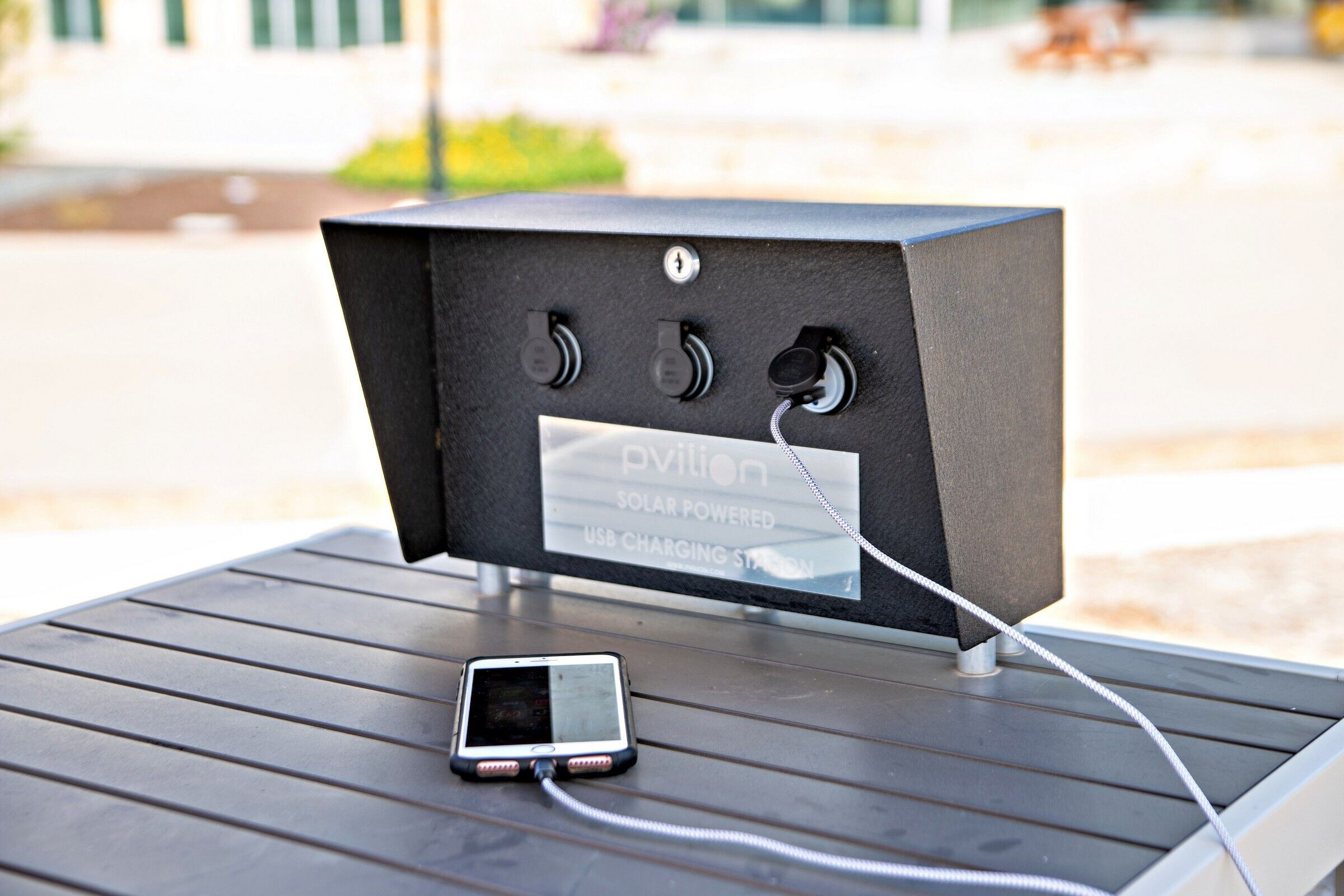
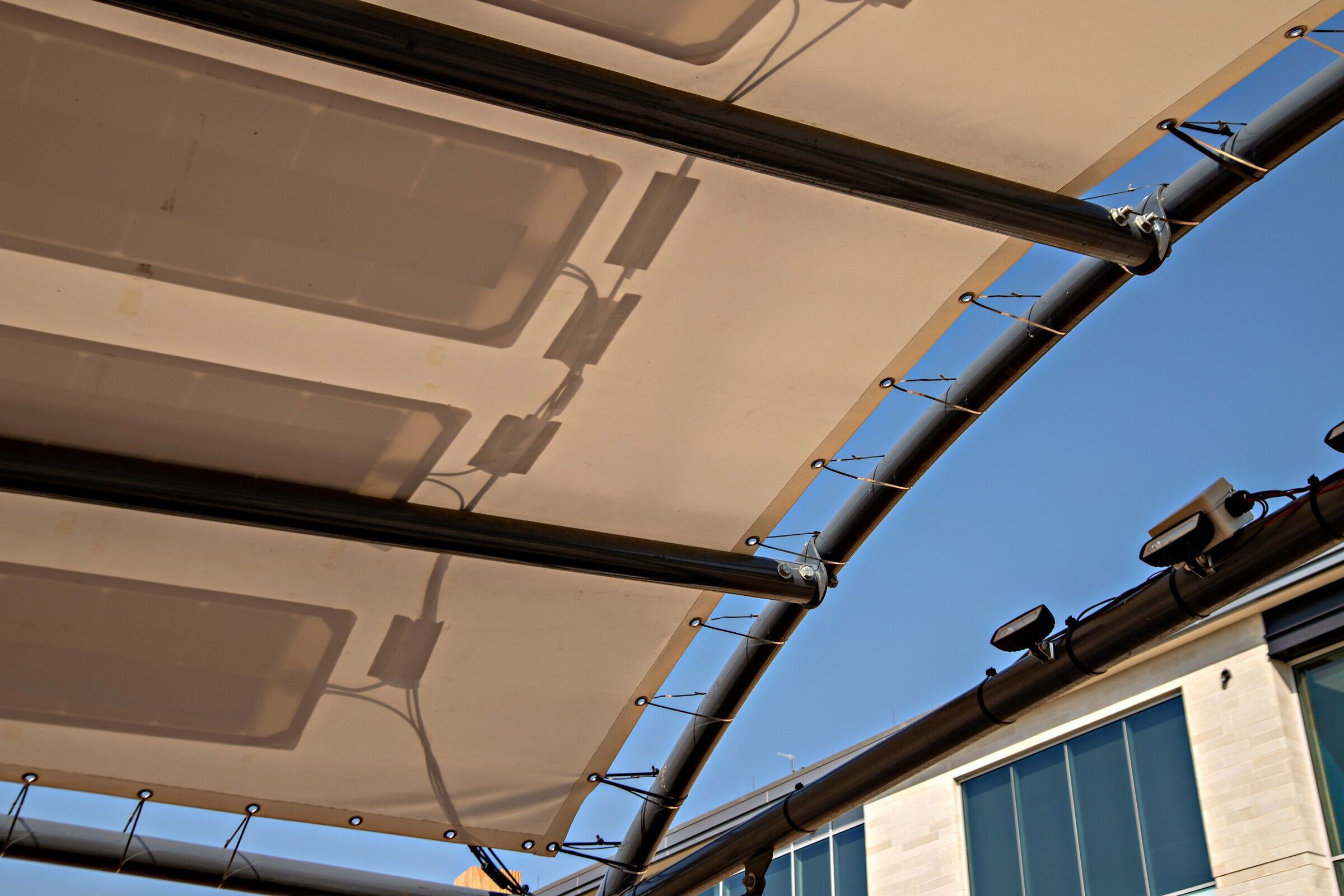
Pvilion began with a collaboration between by between Todd Dalland, a pioneering designer and inventor in the field of lightweight structures, and Robert Lerner, AIA, an architect who has led new technology development programs involving lightweight, deployable structures for NASA and other US government programs, and Colin Touhey, an electrical engineer. Today, Pvilion is a leader in solar powered fabric product solutions. Pvilion’s strength is the aesthetic design and engineering, promoting sustainability through architecture and sculpture. Since its products are a landmark beacon for design-oriented organizations, it often works with forward-thinking and environmentally conscious companies who are trying to extend their sustainability initiatives to the general public.
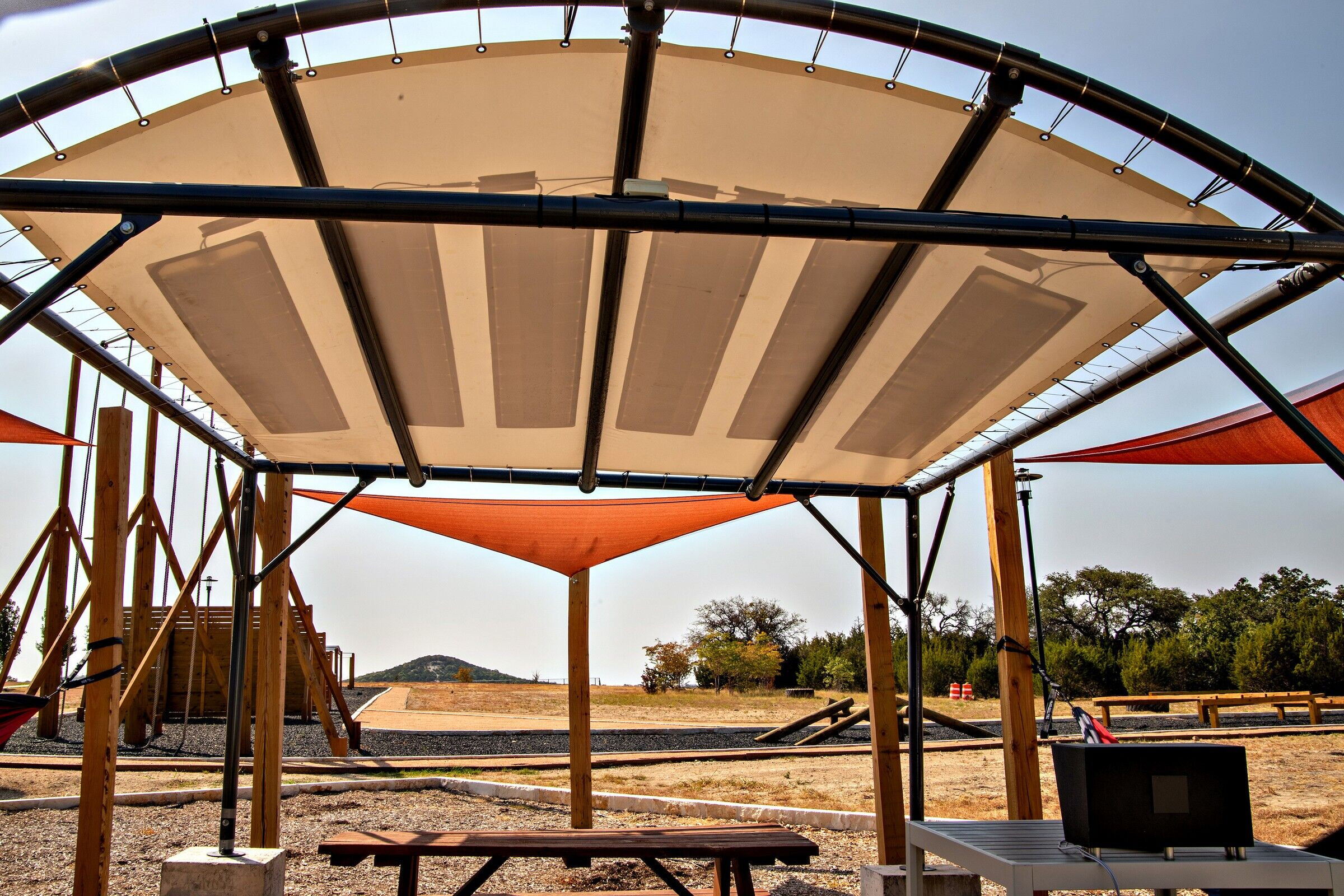
This background in architecture and engineering allowed Pvilion to provide a unique solution for the challenges faced at Texas A&M Central Texas. Pvilion designed, manufactured, and installed a 12-foot by 12-foot solar fabric canopy with adorning tensile fabric shade sails for added shade and attractiveness. The shade solution was designed for flexible durability, minimal weight, energy efficiency and ease of installation. The canopy itself is semi-permanent and can be relocated if desired. It is waterproof, fire-retardant, and UV-resistant. The shaded space was completed with hammocks, picnic benches, and of course solar powered battery kits for device charging. Students can now enjoy the charming outdoor views of campus with one another from the comfort of solar-powered shade.
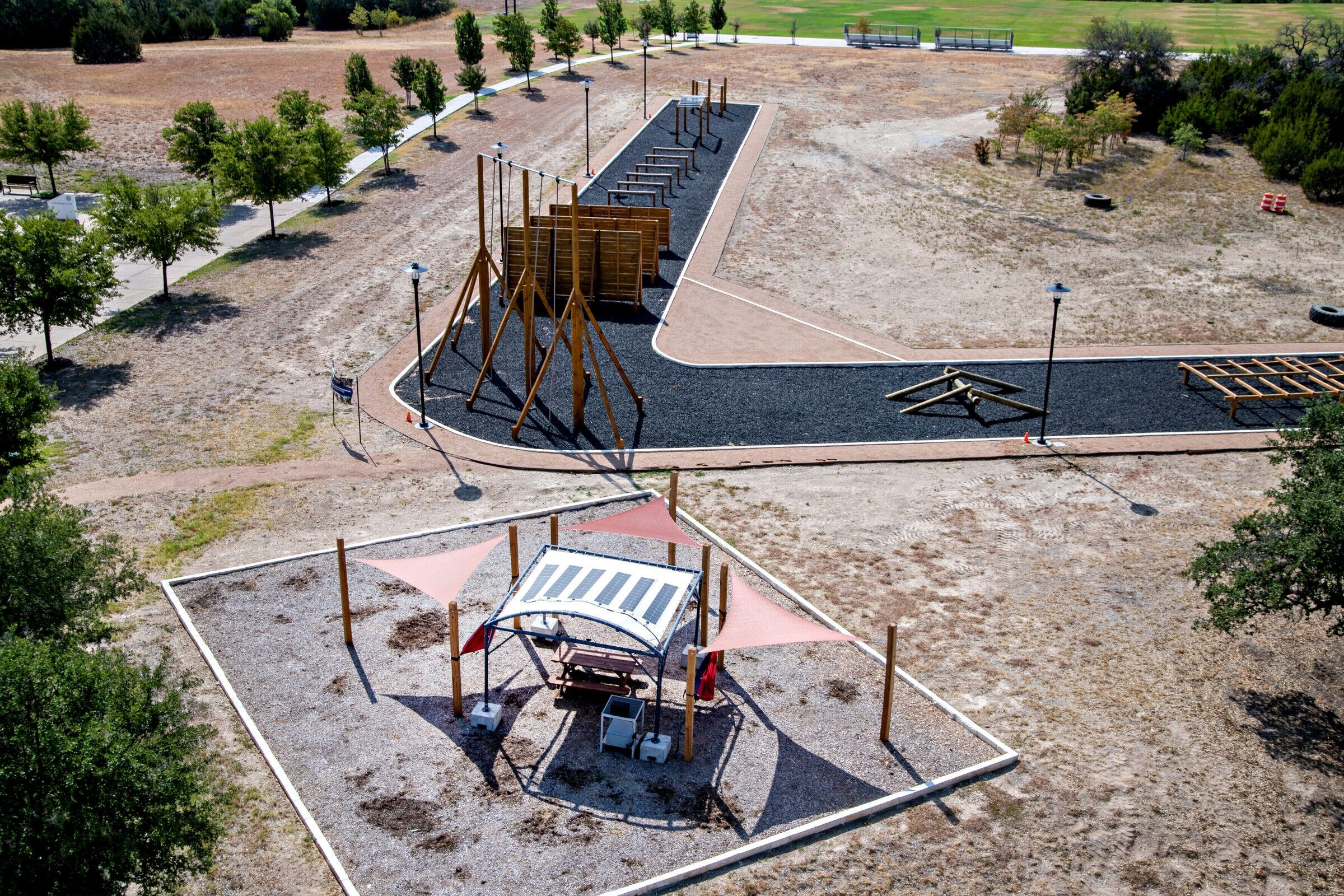
Team:
Architect: Pvilion
Client: Texas A&M University Central Texas
Photography: Rebecca Stinehour - Candid Images Photography
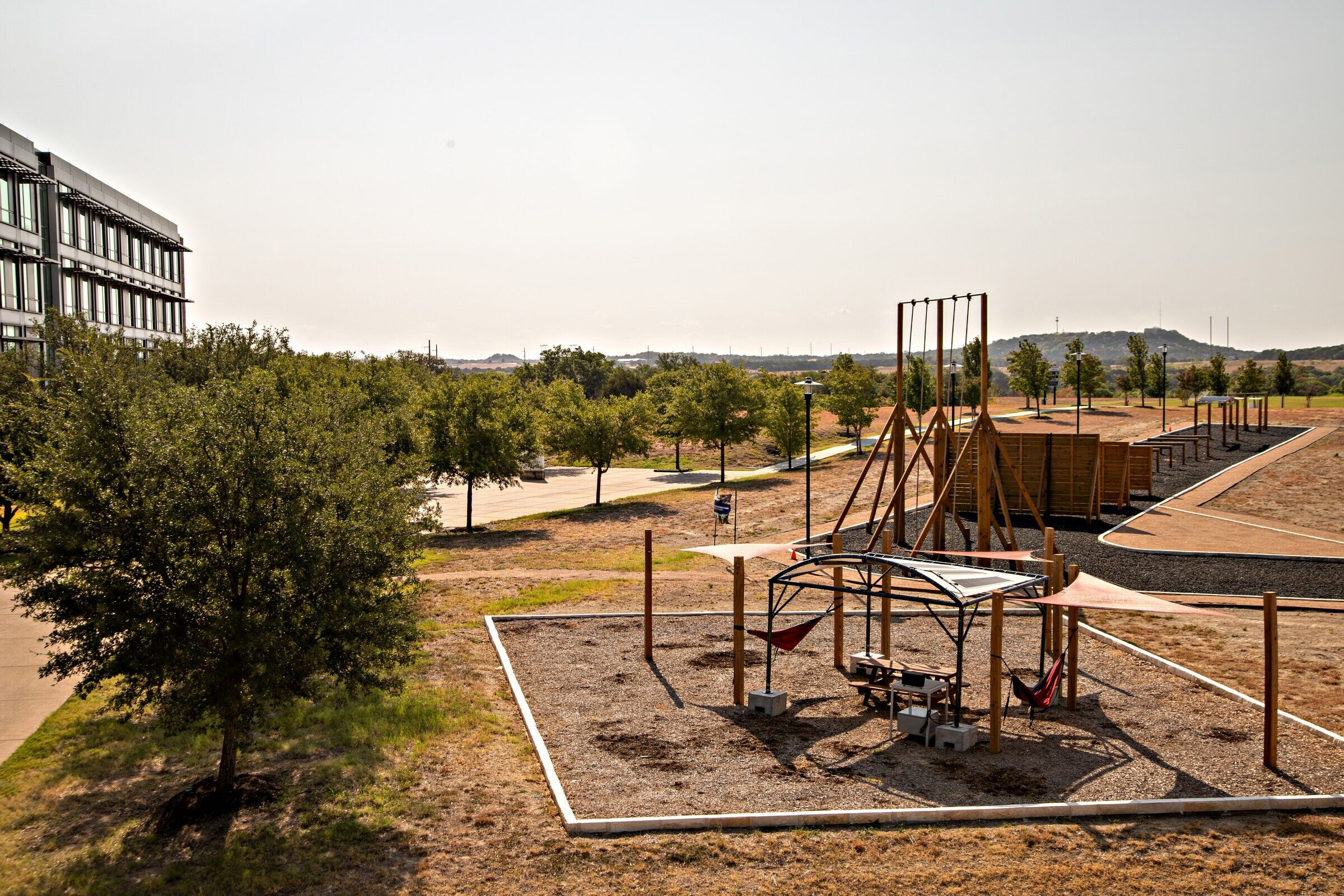
Material used:
1. Fabric: Sioen T1108
2. Frame: Powder coated steel
3. Solar: Proprietary Pvilion solar power fabric
